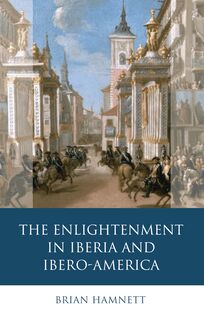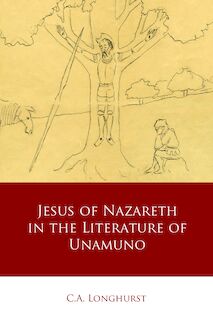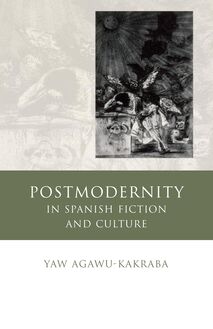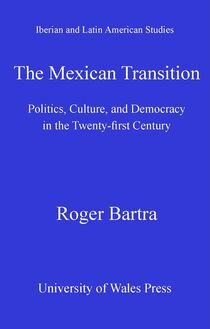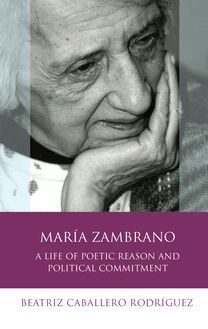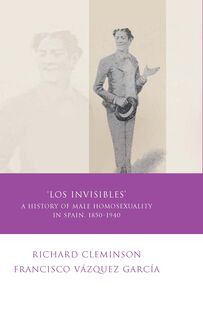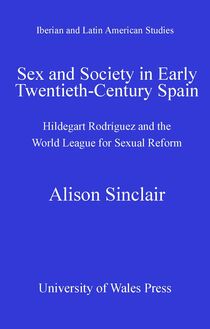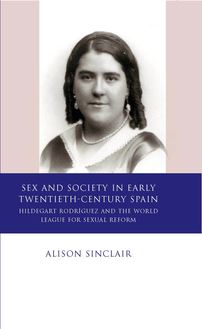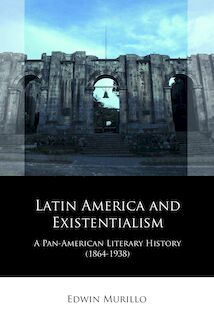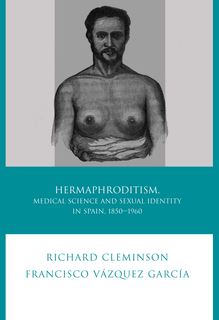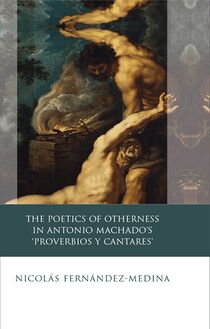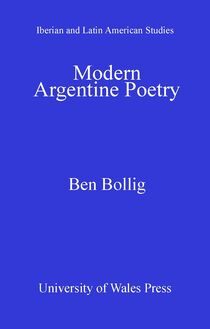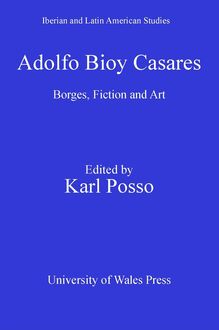-
 Univers
Univers
-
 Ebooks
Ebooks
-
 Livres audio
Livres audio
-
 Presse
Presse
-
 Podcasts
Podcasts
-
 BD
BD
-
 Documents
Documents
-
- Cours
- Révisions
- Ressources pédagogiques
- Sciences de l’éducation
- Manuels scolaires
- Langues
- Travaux de classe
- Annales de BEP
- Etudes supérieures
- Maternelle et primaire
- Fiches de lecture
- Orientation scolaire
- Méthodologie
- Corrigés de devoir
- Annales d’examens et concours
- Annales du bac
- Annales du brevet
- Rapports de stage
La lecture à portée de main
Vous pourrez modifier la taille du texte de cet ouvrage
Découvre YouScribe en t'inscrivant gratuitement
Je m'inscrisThe Poetics of Otherness in Antonio Machado's 'proverbios Y Cantares' , livre ebook
Découvre YouScribe en t'inscrivant gratuitement
Je m'inscrisEn savoir plus
Vous pourrez modifier la taille du texte de cet ouvrage
En savoir plus

Description
Sujets
Informations
| Publié par | University of Wales Press |
| Date de parution | 15 janvier 2011 |
| Nombre de lectures | 0 |
| EAN13 | 9781783164356 |
| Langue | English |
Informations légales : prix de location à la page 0,1900€. Cette information est donnée uniquement à titre indicatif conformément à la législation en vigueur.
Extrait
Iberian and Latin American Studies
The Poetics of Otherness in Antonio Machado’s ‘Proverbios y cantares’
Series Editors
Professor David George (Swansea University)
Professor Paul Garner (University of Leeds)
Editorial Board
David Frier (University of Leeds)
Laura Shaw (University of Liverpool)
Gareth Walters (Swansea University)
Rob Stone (Swansea University)
David Gies (University of Virginia)
Catherine Davies (University of Nottingham)
Richard Cleminson (University of Leeds)
IBERIAN AND LATIN AMERICAN STUDIES
The Poetics of Otherness in Antonio Machado’s ‘Proverbios y cantares’
Nicolás Fernández-Medina
© Nicolás Fernández-Medina, 2011
All rights reserved. No part of this book may be reproduced in any material form (including photocopying or storing it in any medium by electronic means and whether or not transiently or incidentally to some other use of this publication) without the written permission of the copyright owner except in accordance with the provisions of the Copyright, Designs and Patents Act 1988. Applications for the copyright owner’s written permission to reproduce any part of this publication should be addressed to The University of Wales Press, 10 Columbus Walk, Brigantine Place, Cardiff, CF10 4UP.
www.uwp.co.uk
British Library CIP
A catalogue record for this book is available from the British Library.
ISBN 978-0-7083-2322-9
e-ISBN 978-0-7083-2323-6
The right of Nicolás Fernández-Medina to be identified as author of this work has been asserted in accordance with sections 77, 78 and 79 of the Copyright, Designs and Patents Act 1988.
Peter Paul Rubens, Cain Slaying Abel, c.1608-9 The Samuel Courtauld Trust, Courtauld Institute of Art, London
Contents
Series Editors’ Foreword
Acknowledgements
Introduction Beyond the Lyrical and the Proverbial: Antonio Machado’s Poetic Thinking
Chapter 1: The Problem of Subjectivity: How to Know the Self and Other
Chapter 2: Towards Conceiving the Other: The Formative Years
Chapter 3: From Art to Life: Critical Inquiries and a New Poetry
Chapter 4: The God of Intersubjectivity
Chapter 5: The Double Bind of Knowledge and Ignorance
Conclusion
Works Cited
Notes
Series Editors’ Foreword
Over recent decades the traditional ‘languages and literatures’ model in Spanish departments in universities in the United Kingdom has been superceded by a contextual, interdisciplinary and ‘area studies’ approach to the study of the culture, history, society and politics of the Hispanic and Lusophone worlds - categories that extend far beyond the confines of the Iberian Peninsula, not only in Latin America but also to Spanish-speaking and Lusophone Africa.
In response to these dynamic trends in research priorities and curriculum development, this series is designed to present both disciplinary and interdisciplinary research within the general field of Iberian and Latin American Studies, particularly studies that explore all aspects of cultural production (inter alia literature, film, music, dance, sport) in Spanish, Portuguese, Basque, Catalan, Galician and indigenous languages of Latin America. The series also aims to publish research in the History and Politics of the Hispanic and Lusophone worlds, at the level of both the region and the nation-state, as well as on Cultural Studies that explore the shifting terrains of gender, sexual, racial and postcolonial identities in those same regions.
Acknowledgements
I would like to extend my sincerest appreciation to Professor Michael Predmore for reintroducing me to Antonio Machado’s poetry during my graduate years at Stanford University. Professor Predmore’s expert knowledge of nineteenth-and twentieth-century Spanish literature and history as well as our long discussions on Spanish poetry steered me toward the core ideas in this book. I am also very grateful to Armand F. Baker, who read several chapters of my manuscript and provided me with feedback and recommendations. In Spain, Jordi Doménech supplied me with excellent bibliographical references and guided me in locating several documents and articles concerning Machado’s life and work. I must also express my indebtedness to my colleagues John Lipski, Sherry Roush, Bob Blue, Marie Speicher and Maria Truglio at The Pennsylvania State University for their feedback and comments on my manuscript. At the University of Wales Press, I would like to thank Sarah Lewis, the anonymous reviewers of my manuscript, and the series editors and copy-editors for all their support and professionalism. My deepest thankfulness goes to my wife, Kelli, and daughter, Beatriz.
Introduction
Beyond the Lyrical and Proverbial: Antonio Machado’s Poetic Thinking
El pensamiento poético, que quiere ser creador, no realiza ecuaciones, sino diferencias esenciales, irreductibles; sólo en contacto con lo otro, real o aparente, puede ser fecundo.
Antonio Machado, Juan de Mairena
From his first book Soledades (1903) to Campos de Castilla (CC, 1912) and the first edition of Poesías completas (1917), and onwards to Nuevas canciones (NC , 1924) and the writings of the apocryphal Abel Martín and Juan de Mairena of the 1930s, Antonio Machado distilled his poetic thought into the sententious forms prevalent in Spanish folklore. Over the years, his poetry became more concise and conceptual, and it connected with the aphoristic tradition of what Mairena called el saber popular . As Mairena put it: ‘Escribir para el pueblo es escribir para el hombre . . . Por eso yo no he pasado de folklorista, aprendiz, a mi modo, de saber popular’ (1971a: p. 150). This often cited dictum illuminates one of the cornerstones of Machado’s poetry: the poetic word is the privileged site for an open dialogue between the yo and the tú , and the pueblo ’s knowledge, as expressed in its dynamic folklore, is the epistemological field of this dialogue. The many rimas, canciones and parábolas we find in Machado’s works are a fine testament to this dialogue between the yo and tú , yet the ultimate succinct expression that speaks to its more meditative line of inquiry is best conceived in his ‘Proverbios y cantares’ (PrCs) , the over one hundred and sixty, mostly four-verse octosyllabic folk-inspired poems spanning from 1909 to 1937. 1 It is Machado’s fondness for poetic distillation in the PrCs that makes these poems so accessible and, oftentimes, so impossibly elusive. A handful of them, like the much-admired poem xxix in CC that brings to mind Machado’s life-traveller, ‘Caminante, son tus huellas el camino, y nada más’ (famously made into a song by Joan Manuel Serrat in 1968), or poem viii in NC , the shortest of the collection, which states ‘Hoy es siempre todavía’, are referenced by readers now and again as examples of Machado’s unique poetic-philosophical craft. However, we still do not have an accurate picture of how these PrCs contribute to one of the fundamental concerns of his oeuvre: . the concept of Other. 2
Ever since his first poems in Soledades , the subject of otherness (the quality or state of being other, and how the experience of difference can defy systems of classification, interpretation and social categorization) infused almost every aspect of Machado’s writing. Over the years, he approached otherness not only as a way to transcend a philosophical tradition of solipsistic idealism (what he called ‘el cantarse a sí mismo’), but also as a means to incorporate the rich complexities of social life into his work. In broad outline, otherness for Machado was almost always conceived through a poetic-philosophical praxis that attempted to understand how the self interacted with the world, and how the self experienced and learned from this complex interaction, rather than a question of power, domination, and repression that the concept ‘other’ often conjures up today (I am referring specifically to the postcolonial criticism of Homi K. Bhaba, Gayatri Spivak and the late Edward Said who have theorized ‘otherness’ in relation to socio-economic, cultural and political exploitation). How can one, Machado often asked himself, establish meaningful communication with an Other in the world? How can one engage ‘un otro real’, as his alter-ego Abel Martín referred to it, whose presence involves the self in a deeply ethical relationship? The PrCs offer revealing insights into these deceptively simple questions, and they are arguably Machado’s most representative and least systematically studied poems on this subject.
Part of the difficulty surrounding the PrCs is their brevity. ‘Antonio llega a condensar [su poesía] de tal modo’, José Machado tells us, ‘que le basta a veces cuatro palabras para decir algo esencial’ (19). Understanding how these ‘cuatro palabras’ contribute to Machado’s poetic-philosophical Weltanschauung in his PrCs has never been simple. To begin with, a great majority of the poems follow the Spanish folk tradition of cantares formally speaking (the soleá, solearillas, redondillas , etc.), but this tradition is displaced by a proverbial voice whose inspiration, tone, irony, wit and deep contemplative quality greys the lines of what exactly constitutes the lyrical and the proverbial. There are also a number of epigrammatic poems in the PrCs , but to label them as epigrams, aphorisms, or maxims diminishes their rich poetic character. Furthermore, to read them, as many have, as a random collection of poetic-philosophical odds and ends, or merely as a jumble of minor witty poems (‘poemillas’), also blurs their symbolic allusions with the larger work. The poetry’s elusiveness perhaps explains why the PrCs have never fully accommodated strict folklorist or philosophical interpretations, as we shall see, and it is this elusiveness that makes the PrCs such a dynamic part of Machado’s poetry when it comes to his concept of Other.
The present book aims to illuminate the unique character of the PrCs . It proposes that the PrCs reveal a distinct poetics in Machado’s poetry and th
-
 Univers
Univers
-
 Ebooks
Ebooks
-
 Livres audio
Livres audio
-
 Presse
Presse
-
 Podcasts
Podcasts
-
 BD
BD
-
 Documents
Documents
-
Jeunesse
-
Littérature
-
Ressources professionnelles
-
Santé et bien-être
-
Savoirs
-
Education
-
Loisirs et hobbies
-
Art, musique et cinéma
-
Actualité et débat de société
-
Jeunesse
-
Littérature
-
Ressources professionnelles
-
Santé et bien-être
-
Savoirs
-
Education
-
Loisirs et hobbies
-
Art, musique et cinéma
-
Actualité et débat de société
-
Actualités
-
Lifestyle
-
Presse jeunesse
-
Presse professionnelle
-
Pratique
-
Presse sportive
-
Presse internationale
-
Culture & Médias
-
Action et Aventures
-
Science-fiction et Fantasy
-
Société
-
Jeunesse
-
Littérature
-
Ressources professionnelles
-
Santé et bien-être
-
Savoirs
-
Education
-
Loisirs et hobbies
-
Art, musique et cinéma
-
Actualité et débat de société
- Cours
- Révisions
- Ressources pédagogiques
- Sciences de l’éducation
- Manuels scolaires
- Langues
- Travaux de classe
- Annales de BEP
- Etudes supérieures
- Maternelle et primaire
- Fiches de lecture
- Orientation scolaire
- Méthodologie
- Corrigés de devoir
- Annales d’examens et concours
- Annales du bac
- Annales du brevet
- Rapports de stage
